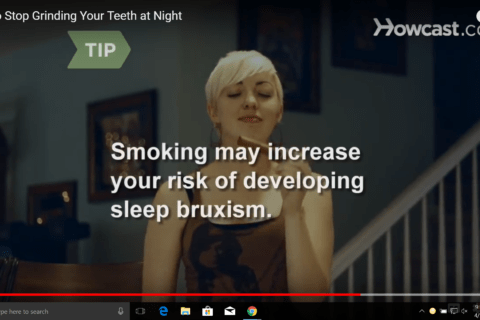All About Teeth Grinding
How much do you know about teeth grinding? Known as bruxism, it’s a condition that causes people to grind their teeth or clench their jaws. This grinding and clenching typically happen during sleep, though if you have bruxism, you may also clench your teeth while you’re awake.
Doctors aren’t completely sure what causes bruxism. Especially if it happens when you’re awake, you may be grinding your teeth because of stress or anxiety. On the other hand, bruxism can also be caused by an abnormal bite or crooked teeth. It can also be the result of a sleep disorder like sleep apnea, and some cases of bruxism can even be caused by intestinal parasites or allergies.
You may not even be aware that you’re grinding your teeth in your sleep, but you may be experiencing symptoms. Signs of bruxism include headaches and jaw soreness. Your teeth may feel painful, or they may even be loose or broken.
How is bruxism treated? The first step is some preventative lifestyle measures. Cut back on caffeine, avoid alcohol, and don’t chew gum. This should go without saying, but don’t chew non-food items either. Pencils, pens, and other things that aren’t food should stay out of your mouth entirely, and should certainly not be chewed. Trying to reduce your stress may also help prevent teeth grinding, perhaps by practicing yoga or deep breathing, or by reading or listening to music before you go to bed, to allow yourself time to wind down.
Further measures that can alleviate bruxism include training yourself to not to clench your jaw. You might also try relaxing your jaw with a warm washcloth at night. Finally, you should consider talking to your dentist about a mouthguard. A mouth guard will even out the pressure across your jaw, and it will also create a barrier between your teeth, to keep them from becoming damaged.
If you’re concerned that you may be grinding your teeth, Belmont Dental Group can help. At Belmont Dental Group, our team of dentists provides personalized and gentle dental care, backed up by more than 25 years of experience. We believe in open, honest communication, and encourage our patients to ask questions and learn all they can about different treatment options and make informed decisions. Our practice covers all phases of dentistry from teeth cleaning to cosmetic dentistry to emergency care, and we’re committed to helping patients become partners in their own dental health. We always have your best interests in mind and will use our training and technology to benefit you and your family. If you’re looking for quality dental services and personalized care in an atmosphere of trust, call (617) 484-2431 or contact us through our website to learn more.

